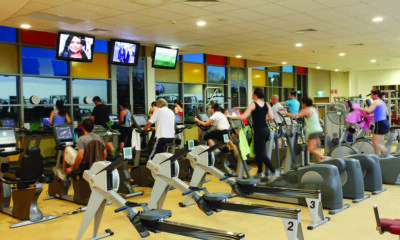Health
How to deal with anxiety attacks at night
Anxiety attacks can be a frightening and overwhelming experience, especially when they occur at night when you are trying to sleep. If you are someone who suffers from anxiety attacks at night, it can be helpful to have some strategies in place to help you How to deal with anxiety attacks at night. Here are a few tips that may be helpful:
How to deal with anxiety attacks at night
Practice relaxation techniques:
Deep breathing, progressive muscle relaxation, or guided imagery can all be effective ways to calm your body and mind during an anxiety attack. Take a few deep breaths and try to focus on something peaceful, such as a calming image or a mantra.
Create a calming bedtime routine:
Establishing a consistent bedtime routine can help to reduce anxiety and improve sleep quality. This may include activities such as reading a book, taking a warm bath, or practicing relaxation techniques.
Get out of bed:
If you are having an anxiety attack and are unable to fall asleep, it may be helpful to get out of bed and do something calming, such as stretching or taking a walk. Avoid looking at screens or engaging in stimulating activities, as these can make it more difficult to fall asleep.
Talk to someone:
Sometimes it can be helpful to talk to someone about your anxiety attack, whether it be a friend, family member, or therapist. Sharing your feelings and experiences with someone can provide a sense of support and understanding.
Seek professional help:
If your anxiety attacks are frequent or severe, it may be helpful to seek the help of a mental health professional. A therapist or counselor can work with you to develop strategies for managing anxiety and improving sleep.
Identify and address triggers:
It can be helpful to try to identify any triggers that may be contributing to your anxiety attacks. This could be something specific, such as a certain thought or event, or it could be a more general feeling of stress or worry. Once you have identified potential triggers, try to address them directly. This may involve making lifestyle changes, seeking support, or seeking professional help.
Avoid caffeine and alcohol:
Both caffeine and alcohol can interfere with sleep and contribute to anxiety. Try to avoid consuming these substances close to bedtime, and consider limiting your overall intake. Doing this will help you How to deal with anxiety attacks at night.
Exercise during the day:
Exercise can be an effective way to reduce anxiety and improve sleep. Aim to get at least 30 minutes of moderate-intensity exercise each day, such as walking, running, or cycling.
Try sleep aids:
If anxiety is disrupting your sleep and you are struggling to fall asleep, it may be helpful to try a natural sleep aid, such as melatonin or valerian root. These supplements can help to promote relaxation and improve sleep quality. However, it is important to speak with a healthcare professional before starting any new supplement, as they can have potential side effects and may interact with other medications.
Seek support:
It can be helpful to have a supportive network of people you can turn to for help and encouragement. This may include friends, family members, or a support group. Sharing your feelings and experiences with others who understand can provide a sense of comfort and help you feel less alone.
conclusion
Anxiety attacks at night can be a challenging and distressing experience. However, by using the strategies outlined above, you can learn to manage your anxiety and improve your sleep quality. Remember to be patient with yourself and seek help if you are struggling. We hope you have now gained knowledge about How to deal with anxiety attacks at night?
-

 Fashion8 months ago
Fashion8 months agoFashion designing scope in Pakistan
-

 Lifestyle4 months ago
Lifestyle4 months agoLifestyle photography ideas in 2022
-

 Lifestyle4 months ago
Lifestyle4 months agoCowboy Hat Styles and Their Creases
-

 Sports5 months ago
Sports5 months agoBest sports to play in high school
-

 Sports8 months ago
Sports8 months agoTop 10 Best Gyms In The World
-

 Tech5 months ago
Tech5 months agoHow to Fix League of Legends Disconnecting on Windows
-

 Health4 months ago
Health4 months agoHow to gain muscle for skinny guys at home
-

 Business4 months ago
Business4 months agoHow to start a real estate investment company